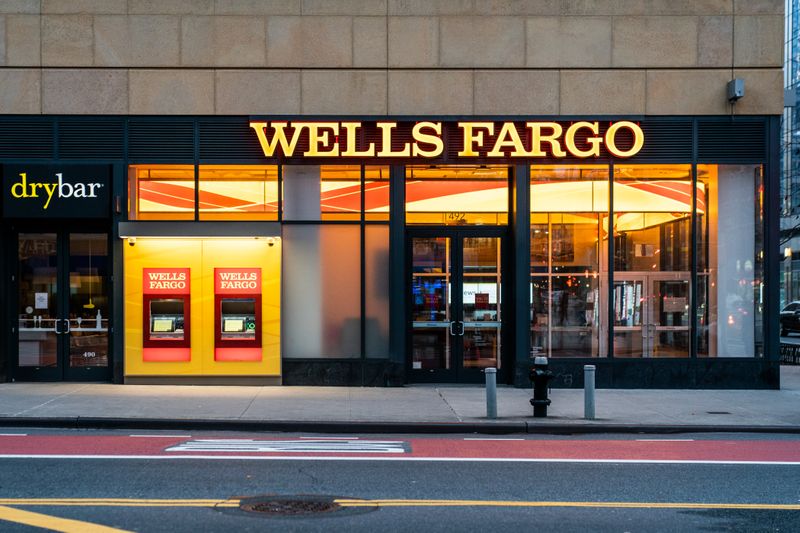By Noor Zainab Hussain and Imani Moise
(Reuters) - Wells Fargo (NYSE:WFC) & Co posted its first quarterly loss since the 2008 financial crash on Tuesday as the coronavirus crisis forced it to set aside $9.57 billion to cover potential loan losses and slash its dividend, derailing efforts to recover from a sales scandal.
The bank's earnings have suffered since the start of the COVID-19 pandemic as it does not have a strong capital markets business to lean on like its Wall Street peers.
JPMorgan Chase (NYSE:JPM) & Co beat Wall Street estimates for profit in the second quarter as trading revenue surged, even as it set aside a record $10.5 billion to brace for rising defaults, while Citigroup Inc (NYSE:C) posted a 73% drop in profit.
Wells Fargo reported a net loss of $2.4 billion, or 66 cents per share, for the second quarter ended June 30, compared with a profit of $6.2 billion, or $1.30 per share, in the year-earlier period.
Analysts had expected Wells Fargo to report a loss of 20 cents per share, according to Refinitiv data.
"We are anticipating weak results for Wells; these were awful," Edward Jones analyst Kyle Sanders said.
"This will be the toughest quarter for the banking industry since the financial crisis in 2008, and Wells results will be the worst of the bunch as the Fed's asset cap makes an already challenging environment even more difficult," he added.
The U.S. Federal Reserve has placed an asset cap on Wells Fargo as a penalty for its misdeeds.
Wells Fargo also reported an operating loss of $1.2 billion, mainly due to customer remediation accruals, suggesting that the sales scandal was still hurting the bank and its results.
Chief Executive Officer Charlie Scharf promised changes to improve the bank's performance and said while the hit from the pandemic was unprecedented, its franchise should perform better.
"We are extremely disappointed in both our second quarter results and our intent to reduce our dividend. Our view of the length and severity of the economic downturn has deteriorated considerably from the assumptions used last quarter," Scharf said.
U.S. lenders began building up reserves in the first quarter to cover defaults from consumers and companies as the COVID-19 pandemic slammed the brakes on the economy, but with cases again surging, the scale of the likely losses remains anyone's guess.
Wells Fargo set aside $9.57 billion in credit loss provisions, up from $503 million a year earlier.

The San Francisco-based bank also cut its dividend for the third quarter to 10 cents per share from 51 cents previously to reflect the U.S. Federal Reserve's recent curbs on bank dividends.